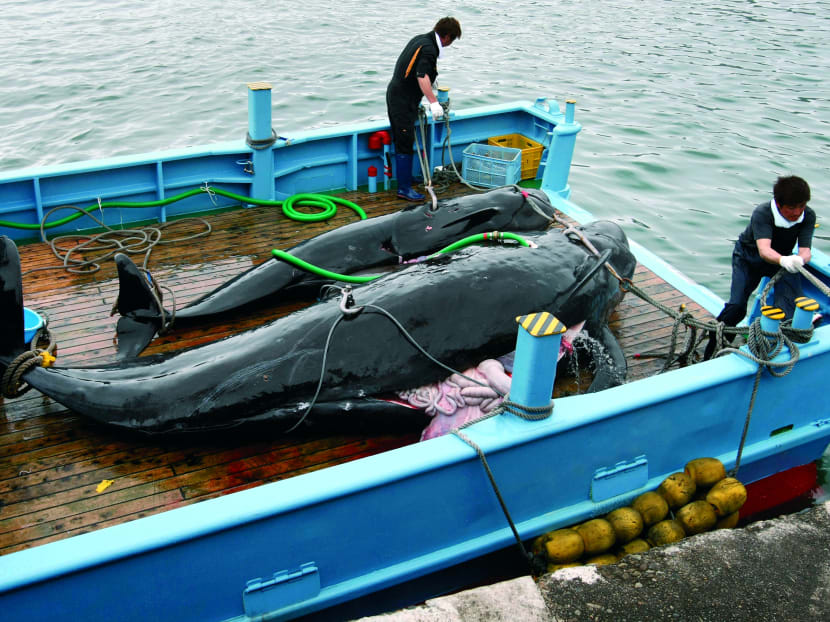Japan to resume ‘research’ whaling in Antarctic: media
TOKYO — Japan will resume “research” whaling in the Antarctic by the end of March next year, local media reported today (Nov 28), despite a call by global regulators for more evidence that the expeditions have a scientific purpose.

Japan will resume “research” whaling in the Antarctic by the end of March next year. REUTERS file photo
TOKYO — Japan will resume “research” whaling in the Antarctic by the end of March next year, local media reported today (Nov 28), despite a call by global regulators for more evidence that the expeditions have a scientific purpose.
The move came after a one-season suspension of its hunting in the ocean as the United Nations’ top legal body judged last year that Japan’s whaling there was a fig leaf for a commercial hunt.
Japan’s fisheries agency has since told the International Whaling Commission that it would resume whaling in the Antarctic Ocean by cutting annual minke whale catches by two-thirds to 333 this season.
But the IWC’s scientific committee said in June that Japan had failed to give enough detail to explain why it wanted to kill almost 4,000 minke whales in the Antarctic over the next 12 years.
Japan’s agency decided yesterday however to go ahead with the plan, claiming that it was scientifically adequate and no change was needed, Kyodo News said.
The Yomiuri Shimbun and other media said Japanese whalers were expected to depart for the ocean possibly by the end of December.
There was no immediate comment from the agency.
Despite international disapproval, Japan has hunted whales in the Southern Ocean under an exemption in the global whaling moratorium that allows for lethal research.
It makes no secret of the fact that meat from the mammals — killed ostensibly for research — is processed into food, and says the whale population in any case is big enough to allow sustainable whaling.
However, the highest court of the United Nations, the International Court of Justice, ruled in March 2014 that the annual Southern Ocean expedition was a commercial hunt masquerading as science to skirt the international moratorium.
Respecting the judgement, Japan sent whaling ships to the ocean last season but they returned with no catch.
It accuses opponents of being emotional about whales and disregarding what it says is evidence to support its position. AFP






